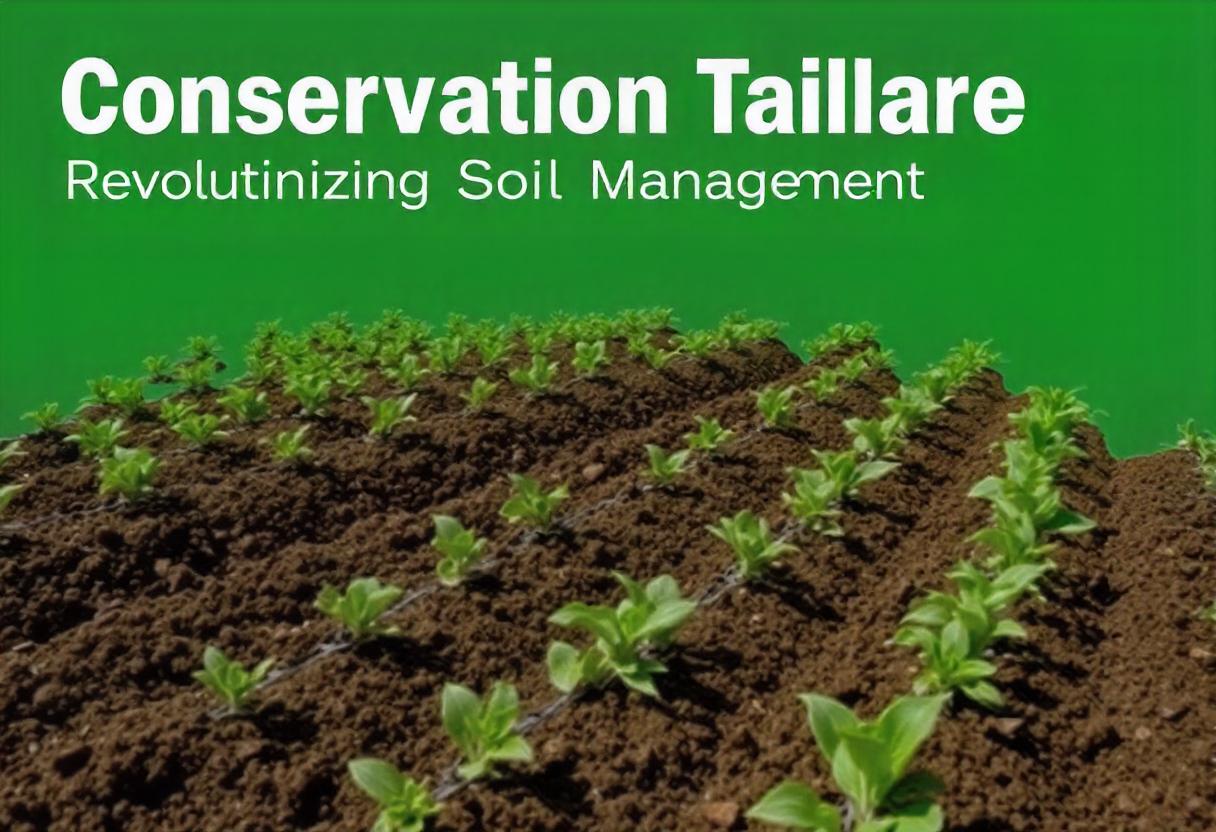
Conservation tillage is a farming practice designed to improve soil health and sustainability while increasing crop productivity. It encompasses a range of techniques that minimize soil disturbance compared to traditional tillage methods. By preserving soil structure, moisture, and organic matter, conservation tillage plays a crucial role in modern agriculture.
What is Conservation Tillage?
Conservation tillage refers to any tillage practice that leaves a significant portion of the soil surface covered with crop residue or other organic material. This approach contrasts with conventional tillage, which often involves extensive soil disruption and the complete removal of crop residues. The primary goal of conservation tillage is to maintain or improve soil quality, reduce erosion, and enhance water retention.
Types of Conservation Tillage
- No-Till Farming: This method involves planting crops directly into the undisturbed soil, where previous crop residues remain on the surface. No-till farming minimizes soil erosion and water runoff, promoting better soil structure and fertility over time.
- Reduced-Till Farming: Reduced-till farming involves minimal soil disturbance compared to conventional methods. It includes practices such as shallow disking or using specialized equipment that cuts through the soil without turning it over completely.
- Strip-Till Farming: This technique involves tilling only the narrow strips where seeds will be planted, leaving the rest of the field undisturbed. Strip-till farming balances the need for seedbed preparation with the benefits of preserving soil structure and organic matter.
- Mulch-Till Farming: Mulch-till farming incorporates crop residues into the soil through light tillage, creating a mulch layer that helps protect the soil surface. This practice improves soil moisture retention and reduces erosion.
Benefits of Conservation Tillage
1. Soil Health Improvement: Conservation tillage helps maintain soil structure and promotes the accumulation of organic matter. This leads to increased soil fertility, better water infiltration, and reduced compaction. Healthy soil is more resilient to extreme weather conditions and can support more productive crops.
2. Erosion Control: By keeping soil covered with crop residues, conservation tillage reduces the risk of soil erosion caused by wind and water. The protective cover prevents the loss of valuable topsoil and reduces sedimentation in water bodies.
3. Water Conservation: Conservation tillage practices enhance soil moisture retention by reducing evaporation and improving water infiltration. This is particularly beneficial in regions prone to drought or water scarcity.
4. Carbon Sequestration: The preservation of soil organic matter through conservation tillage contributes to carbon sequestration, which helps mitigate the effects of climate change. Soils with high organic content can absorb and store more carbon dioxide from the atmosphere.
5. Reduced Fuel and Labor Costs: By minimizing the need for extensive soil preparation and maintenance, conservation tillage reduces fuel consumption and labor costs. This not only makes farming more cost-effective but also reduces the environmental impact associated with machinery use.
Challenges and Considerations
Despite its benefits, conservation tillage can present some challenges. The transition from conventional tillage to conservation tillage requires changes in equipment, management practices, and farmer mindset. Additionally, some crops and soil types may require specific conservation tillage practices to be effective.
1. Equipment and Management Adjustments: Implementing conservation tillage often requires specialized equipment and adjustments to farming practices. Farmers may need to invest in new machinery or modify existing tools to accommodate the reduced soil disturbance approach.
2. Pest and Weed Management: Conservation tillage can alter the dynamics of pest and weed populations. Farmers may need to adopt integrated pest management strategies and adjust herbicide use to address these changes effectively.
3. Initial Costs and Learning Curve: The initial investment in conservation tillage equipment and the learning curve associated with new practices can be a barrier for some farmers. However, the long-term benefits often outweigh these initial costs.
Conservation tillage represents a significant shift in how we manage agricultural land. By focusing on soil health, erosion control, and water conservation, it offers a sustainable approach to farming that aligns with modern environmental and economic goals.
4o mini